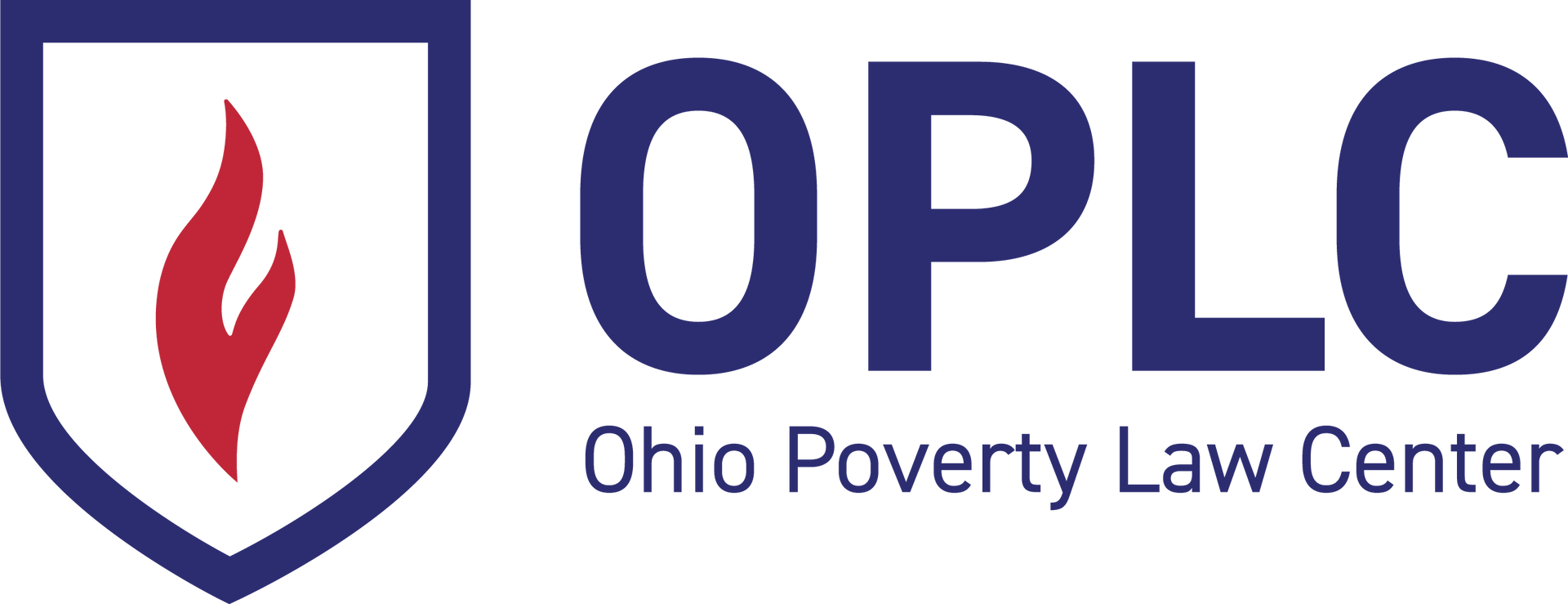MAY 2024 NEWSLETTER
In this Issue: Bill Introductions Follow Senate Select Committee on Housing Report | Bills Introduced that Could Hinder and Help Ohioans Receiving Benefits
Bill Introductions Follow Senate Select Committee on Housing Report Release
On Wednesday, April 17, the Senate Select Committee released its recommendations to address Ohio’s housing crisis. Many of the issues that were raised by legal aid testimony at the regional hearings are included in the report. The lengthy report concludes with 32 recommendations including acknowledging the need for eviction record sealing and landlord transparency to help tenants.
The Committee, which is now a standing committee, will consider legislative proposals based on the recommendations. While some of these proposals may advance more quickly, others are not expected to have any movement until at least 2025.
Four bipartisan bills were introduced to address some of the recommendations—all co-sponsored by Senators Michelle Reynolds (R-Canal Winchester) and Hearcel Craig (D-Columbus).
Senate Bill 243: Zoning Regulations
The full language for this bill has not been introduced yet, but we can expect more to come in the form of an eventual amendment addressing local zoning regulations that impede the development of housing.
Senate Bill 244: Property Tax Exemptions
Another one of many property tax bills now in the legislature, SB 244 authorizes local governments to create residential stability zones where homeowners may qualify for a partial property tax exemption.
Senate Bill 245: Eviction Defense and Mediation
This legislation contains several pieces intended to keep tenants housed. It establishes an eviction defense fund, increases the availability of mediation, provides additional opportunities for continuances in evictions, and creates a uniform process for eviction record sealing.
SB 245 creates an eviction defense fund to provide legal assistance to any person who occupies a dwelling with at least one child under a claim of legal right, other than the dwelling's owner, and whose annual gross income is not more than 250 percent of the federal poverty line for the size of the individual's family.
There are also enormous changes to the availability of mediation during an eviction. SB 245 would allow either party to “demand nonbinding mediation” any time after a complaint is filed and before trial proceedings commence. Upon such a demand, the court “shall” appoint a mediator, and the mediation shall be conducted and concluded within 50 days after the complaint was filed.
To ensure parties can avail themselves of these protections, SB 245 also adds two instances under ORC § 1923.08 in which continuances can be granted for more than eight days:
- If the defendant is entitled to legal representation from the Eviction Defense Fund and has not yet entered into an attorney-client relationship, they could receive a stay of 14 days to find one.
- If either party demands mediation, the court shall enter a stay of up to 50 days.
Finally, SB 245 also creates a uniform process to seal an eviction record. Individuals could file a motion to seal their record if the action was dismissed, judgment was granted for the defendant, judgment was granted for the plaintiff and at least five years have passed, the plaintiff consents to the sealing, or at the judge’s discretion.
Senate Bill 249: Grants for Mortgage, Property Tax, and Utility Bills
SB 249 would provide a homeowner who makes less than $75,000 per year and is sixty-five years or older, disabled, or a caretaker of an individual who is disabled, the opportunity to apply for a grant of up to $3,000 to pay delinquent mortgage, property tax, or utility bills.
Bills Introduced that Could Hinder and Help Ohioans Receiving Benefits
Senator Tim Schaffer (R-Lancaster) introduced Senate Bill 240 on April 9, which would make various changes to public assistance benefits programs which could make it harder for families to access food, medical, and child care assistance. Changes include:
- Removes the ability for Ohio to suspend the three-month time limit on Supplemental Nutrition Assistance Program (SNAP) benefits for people in communities experiencing high unemployment
- Removes the ability for Ohio to identify vulnerable groups of Ohioans—beyond those included in federal law—who need SNAP for more than three months out of every three years
- Requires certain recipients with a prior drug felony conviction to be subject to random drug testing even after completing all court-related requirements
- Makes it harder for hospitals to get reimbursed for care they provide to patients who are qualified but not currently enrolled in Medicaid
- Increases paperwork burdens on caseworkers and Medicaid enrollees.
Supporters of the bill suggest that these changes will weed out ineligible people and prevent fraud. However, many of the provisions in the bill could keep eligible Ohioans from accessing benefits that they need to support their families.
In the Ohio House of Representatives, different approaches to public benefits are being discussed.
Representatives Dan Troy (D-Willowick) and Jay Edwards (R-Nelsonville) introduced House Bill 428 which would establish a supplemental food assistance benefit for households that include an individual who is 60 years of age or older to ensure a minimum monthly benefit of $50.
Representatives Dontavius Jarrells (D-Columbus) and Josh Williams (R-Sylvania) introduced House Bill 464 on March 27 to establish the 'A HAND UP' pilot program (Actionable Help And New Dignity for Upward Progression).
The ‘A HAND UP’ pilot is a three-year program to assist participants in transitioning into the workforce as they become ineligible for public assistance benefits. The pilot program would provide participants with a stipend, provided on a sliding scale, to pay health care insurance premiums and deductibles or childcare expenses.
